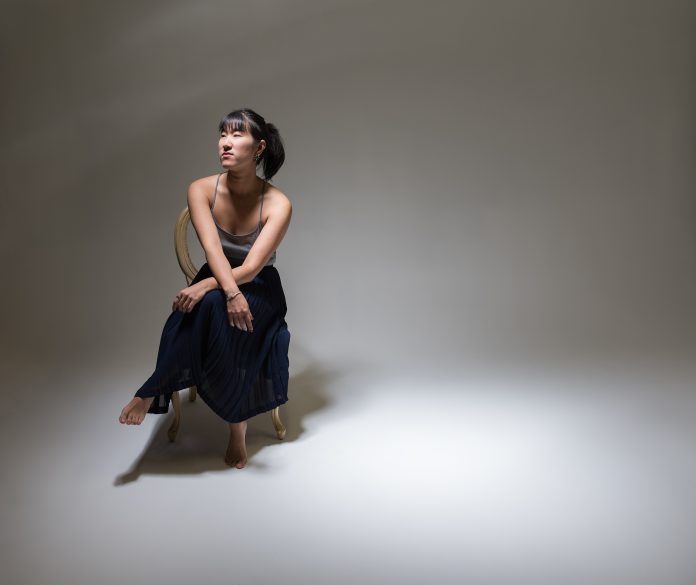Becca Redden, 2016 graduate of the former UW independent studies program, continues her independent streak with ambitious documusical Sing Hey, collaborating with past Kitchener Artist in Residence Janice Lee.
While at UW, Redden utilised the relative freedom of the independent studies program to focus on social justice and media, so becoming a director was “just a natural progression.” Especially since for her undergraduate thesis project, Redden embarked on a cross-country documentary with a friend, interviewing youth striving for change.
The documusical started its life as an intimate portrayal of a tourcation of Redden, Lee’s partner, and sister. They followed Lee on her “hard femme high power” tour of the East Coast and quickly developed into more. Redden and Lee highlight their early conversations revolving around Lee’s song ideas about ancestors, which progressed into a synopsis of “the mythology of the voices that are passed on through the generations,” explained Lee.
Sing Hey is a bilingual pun on Lee’s Korean name Sung Hae. Through Lee, the documusical attempts to explore the mythology of Sung Hae. For Lee, Sung Hae is the artist and Janice Lee’s the real human being.
Lee describes Sung Hae as being “fiercely honest and … powerful,” not bound by the real-world demands of needing grant money, or needing to entertain. For Lee, Sung Hae goes beyond: “It’s easy to give audiences what they want, but when you’re trying to share hard truths about social justice, racism, feminism, colonialism, you have to say things that make people uncomfortable — especially in the Canadian culture that is polite … We don’t want to talk about things, because they make people uncomfortable — so I gain inspiration from this mythical, powerful voice that just says what needs to be said.”
Redden and Lee credit their close friendship for allowing real collaboration. Both see themselves as a creative team, with both filmmaking and music artist backgrounds complimenting each other.
Redden also highlights her experience at UW, of choosing her own professors and sometimes designing her own courses as guiding her intense research development of Sing Hey.
For Lee, the film allowed them to interview artists of colour in different cities each combating social injustice. The film documents a “tying into a larger network of ancestors at work to make change,” which Lee defines as “a kind of magic that’s real.”
Redden recounts this magic as a “blessing.” For her, the task was to ensure observations were not voyeuristic. Redden derides mainstream filmmaking’s obsession with getting a good shot over experiences of those being filmed. For Redden, her good shot, was ensuring that everything was “collaborative … consensual and good.”
Redden says filmmaking is a chance to be radical and make change. Lee adds that, “storytelling is a chance for us to both connect with people — connect with social justice, love and friendship.”
Redden hopes that Sing Hey, like all her filmmaking projects, creates opportunities for people to be represented, whether for artists, youth, or people of colour, and to be “unapologetic about doing amazing things in the community and in art.”
Sing Hey is currently in mid-postproduction with an estimated spring 2017 release. Look for callouts and events for extras and additional music video scenes.





























